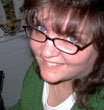Hi FFFers - thanks for hanging in there with me. My youngest daughter, Mary, is an active senior in high school. That makes me a very busy mom! Besides concerts, activities, competitions, fundraisers and scholarship applications, we have also been busy with college registration and prep. She will be attending Five Towns College in Dix Hills, NY, for Film Production. If any of you want a college for fine arts, this is the college to attend on the East Coast. Check it out.
Okay - we've been talking about dialog, including tags and beats. Let's do a quick review. Tags are the "he said/she said" that come after dialog. Beats are a small piece of action that typically comes before the dialog that indicate who is talking without having to use a "he said/she said." Mixing up beats and tags helps make your writing flow and brings it to life.
Break ups are how we format the page. Most readers like to see a lot of white space. Think about it; when you open a book and it's loaded with words, it can feel overwhelming. But if the paragraphs are varied and there's more white space on the page, it's not as intimidating. The key here is mixing it up, like beats and tags. Some paragraphs are longer. Some are short. Same with sentences. And when you are writing dialog, make sure you start a on a new line with each person who is talking.
"It's so hot," Sue said.
Jill fanned herself with a magazine. "I could melt right into the floor. I hate summer."
Bob shook his head. "Why don't you just turn on the air?"
The girls looked at him with distain. "Right," Sue said. "How about you pay our electric bill and we'll do that."
If I were to go on with this scene, I would go to narrative at this point. It doesn't have to be long, but we need to break up dialog from time to time.
Bothersome (or repeated) words. We all have our favorite words or phrases. And that's okay if your character has something they like to say, but if you are using words or phrases that kind of stand out or are unique in some way, it can get real bothersome to the reader. I recently read a NY Times best seller and the main character, Maggie, groused. She groused all the time. She groused four times on one page! And at one point, Maggie groused and it was not an appropriate use of the word. Who the heck says "grouse" anymore? And do you even know what it means? It means to complain. It was so distracting, I never finished the book.
This is why it's so important to have someone else read your stuff. If you can't rope anyone into that, read it out loud to yourself. You'll spot bothersome words and repeated phrases more then reading silently.
Variety is key to strong, interesting writing. What do you think? How do you handle it?
Don't Plant Trees!
11 years ago






